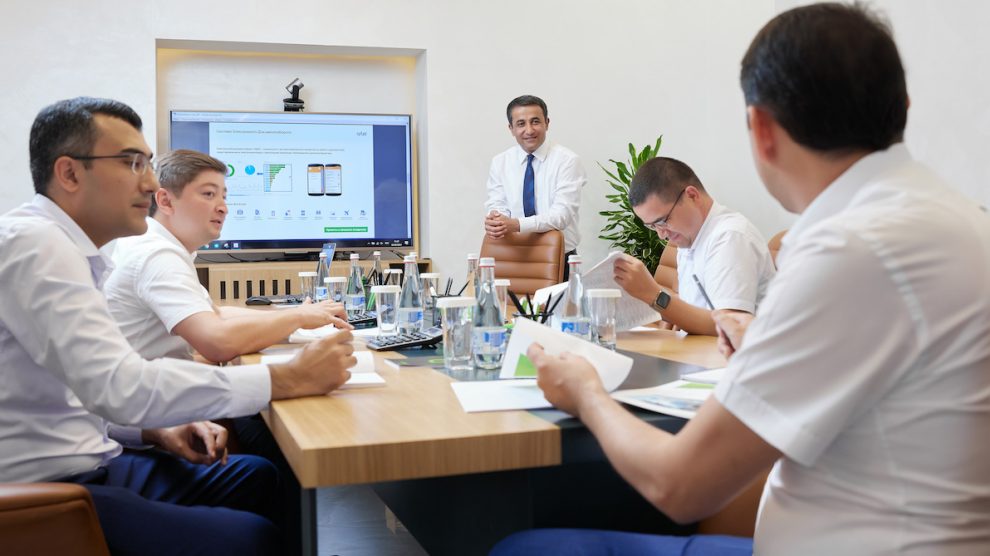Leading Uzbek firms, such as home appliance giant Artel, are making international best practice ESG standards a key part of their business strategies.
When Uzbek home appliance and electronics firm Artel earlier this year became the first private manufacturer in the country to be assigned a rating from one of the big three international ratings agencies (Fitch, which gave Artel a ‘B’ rating with a stable outlook), it was viewed as a sign that the company’s adoption of international best practice in financial reporting and ESG (environmental, social, governance) had paid off.
- EU unveils Global Gateway, its alternative to China’s BRI
- Uzbekistan’s high-speed railways linking the past with the future
- How Uzbekistan’s cotton industry cleaned up its act
“This follows months of hard work by the team as we work to align ourselves with the best global standards of corporate governance,” said Artel’s CFO Bektemir Murodov at the time.
“The rating will help us deepen our cooperation with our partners, access new forms of financing, and is the natural next step towards entering international capital markets.”
UN Global Compact
Now, Artel has taken a further step forward by becoming the first Central Asian company in the home appliance and electronics sector to sign up to the United Nations (UN) Global Compact initiative – a voluntary leadership platform launched in 2000 for the development, implementation, and disclosure of responsible business practices.
One of Uzbekistan’s largest companies, Artel joins nearly 10,000 businesses around the world supporting the UN’s global sustainable development ambitions, but is only the third Uzbek firm to commit to the initiative.
“The discussion on a sustainable digital and electronic future has been front and centre in our operations,” says Bektemir Murodov.
The firm recently backed the UN’s campaign against gender-based violence, and has a number of initiatives focused on water access and education in the country.
“Artel has long been contemplating on how to scale its actions to support environmental sustainability and women empowerment as well as sustainable production and consumption,” adds Murodov.
“Our membership of the UN Global Compact and the Coalition of Business Champions for the Sustainable Development of Uzbekistan demonstrates how earnestly Artel takes the responsibility of taking the lead in reaching the national and global sustainability targets.”
Yu Yu, the UN’s resident coordinator for Uzbekistan, notes that “the UN in Uzbekistan is delighted that Artel has taken the step to add their voice to the growing global group of businesses that support the global ambitions on environmental and social responsibility.
“In particular, the UN in Uzbekistan is keen to welcome Artel as one of the founding members of the Coalition of Business Champions for the Sustainable Development of Uzbekistan, joining a giant food retailer and an agro-industrial company promoting sustainably produced cotton from Uzbekistan.”
Regional leader
Artel’s move comes at an opportune moment for Uzbekistan, as the country positions itself as a regional and even global leader in advancing the UN’s sustainable development goals through partnership and collaboration.
The UN in Uzbekistan says that it is ready to partner with the private sector in incorporating sustainability principles and facilitate dialogue between interested business organisations to drive change in behaviour and help push forward the country’s sustainability agenda and national development goals.
“Together, the UN and the private sector can combine and capitalise on its comparative strengths and resources to deliver much-needed and meaningful results for present and future generations,” adds Yu Yu.
In September, Anna Bjerde, the World Bank’s vice president for Europe and Central Asia, visited Uzbekistan and welcomed the country’s plans to halve poverty by 2026 and reach the status of an upper-middle-income country by 2030.
“The next generation of reforms will help achieve these goals if they focus on accelerating private sector growth to create new and better jobs,” said Bjerde, who added: “Uzbekistan will also need to invest more in people through improving health, education and social protection services, as well as in greater environmental sustainability.”
Not for the first time, the private sector is leading the way.
Unlike many news and information platforms, Emerging Europe is free to read, and always will be. There is no paywall here. We are independent, not affiliated with nor representing any political party or business organisation. We want the very best for emerging Europe, nothing more, nothing less. Your support will help us continue to spread the word about this amazing region.
You can contribute here. Thank you.







Add Comment